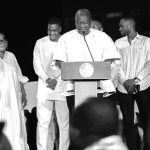When the Gang of 4 was smashed, China was at the bottom of the abyss of retardation.
Twenty years of the Great Leap Forward and the Cultural Revolution had left the country in economic ruins.
Deng Xiaoping, the man who was seen to be second only to Liu Shaoqi in capitalist deviation, was sent for, from the cowshed.
Three times Deng Xiaoping had climbed to the top, then been toppled and sent to the cowshed for uttering unthinkable blasphemy.
Now with Liu Shaoqi dead in jail in 1969; Zhou Enlai, who always felt Deng Xiaoping was needed and possibly protected him from death, was dead and Mao was now dead, the system realised Deng was needed.
China was on its knees in 1976 when Deng Xiaoping was sent for. He immediately focused on Enhancing Mindsets.
Deng asked to be placed in charge of the education schedule.
He called thirty-three top Chinese intellectuals, mainly Professors, and sat to listen to them tell him what should be done. This meeting lasted five days.
After five days of listening, Deng Xiaoping got up and gave a three-hour-long now famous rousing speech. During which he outlined the essential elements of the reforms he would call the second revolution.
Some of the Professors wept. After ten years of being called the “stinky 9th category”, here was Deng Xiaoping saying their knowledge was the primary productive force that would save China. He would rehabilitate intellectuals and thinking. And he established “seek truth from facts”, a Maoist precept, as a central and foundational principle of the reforms.
Deng Xiaoping then convened the hierarchy of the Communist Party, with the full and heavy involvement of The Chinese Academy of Sciences. Science here being a universal descriptor of all knowledge. The meeting lasted thirty-six days.
It was here that Deng established he would not seek vengeance against Mao. That Mao was fallible but “Mao Zedong Thought” was the basis for a prosperous future in China. And that Mao was his leader.
These were fundamental shifts. To call Mao fallible required rare courage.
Deng Xiaoping also established that he would try “The Gang of Four” for crimes against humanity. For they were zero, a thousand points below zero. And they had to be punished for the deaths of hundreds of millions which came about as a result of their policy.
It was at this famous thirty-six-day meeting that Deng Xiaoping laid out, in my view, his most profound canons.
- The voice and needs of the people was the ultimate guide. The party had to seek its legitimacy from raising their living standards.
- That class struggle should not be the principal motive force of Maoist-Leninist-Marxism. Liberation of the productive forces to raise living standards and guarantee shared dignity and shared prosperity was the objective of socialism.
- That China would always do what was right for China and not pander to others expectations.
- That opening up China would take 20% of the world, at the time, out of poverty. It was therefore mandatory to do it.
- That market economics and socialist economics were not contradictory. They needed a delicate balance.
Thence started the reforms. Really taking off in 1980, after Deng, the 5-footer, had consolidated his political power base.
Today in China, one of the very highest honours to aspire for is to be among what the Communist Party calls the top 200 academics. I encountered this in April when I was there.
The state lavishes them in a life of relative luxury. Theirs is to do nothing else but think for China.
In 1980, at seventy-six, Deng had launched the twenty-year plan to take China from $200/capita GNP to $800/capita in twenty years.
In 1989, China was well ahead of the pathway to hit the number, and livelihoods had risen significantly. Deng had also revised the goal to $1000/capita.
The civilian who had led army units with outstanding Generals like Liu Bocheng (the one-eyed General), Deng Xiaoping exhibited rare and prodigious strategic and operational capabilities as a leader.
At eighty-five, and just about to retire, Deng showed why Lee Kwan Yew described him as the most impressive man he ever encountered.
With eleven years still to go, Deng asked that the third generation of Chinese leaders – he belonged to the second with Mao, Lin Biao, Liu Shaoqi, Liu Bocheng and others, were the first – to convene a group.
The task of this group was to think through the fifty years that will follow 2000. Deng Xiaoping! When cometh another?
I was in various levels of my principal school process from 1971 when I went to kindergarten, to 1992 when I graduated as a chemical engineer.
I have worked since 1992 and received world-class leadership training from one of the best companies in the world, in terms of human resource management. At least in my view.
From, 1971 to 2023, Deng Xiaoping was only mentioned in leadership training when I was doing the training. Yesterday, I asked my graduate son whether in his leadership training, he ever heard of Deng. He said he did not.
Any wonder then that so many African intellectuals think neoliberal capitalism is what God handed over to Moses on tablets of stone on Mount Sinai?
Deng Xiaoping’s selected works feature him speaking to more African Presidents than any other set of Presidents. What did they take away?
Deng Xiaoping urged Africa to unite in its dealings with the world. To focus on liberation of the productive forces in our own African way.
Did our own intellectuals hear him? Will there now be a Renaissance? Or are we the problem – lazy and timid?
I was recently told by a group of Ghanaian professionals, in all seriousness, that we cannot think about development beyond an hour at a time. We get tired.
In shock, all I could say was: but we spend hours at church and at funerals? Are we really a people serious about eliminating poverty?
We need a mindset revolution. That is my final statement. Intellectuals must rise up and seize the moment.
















